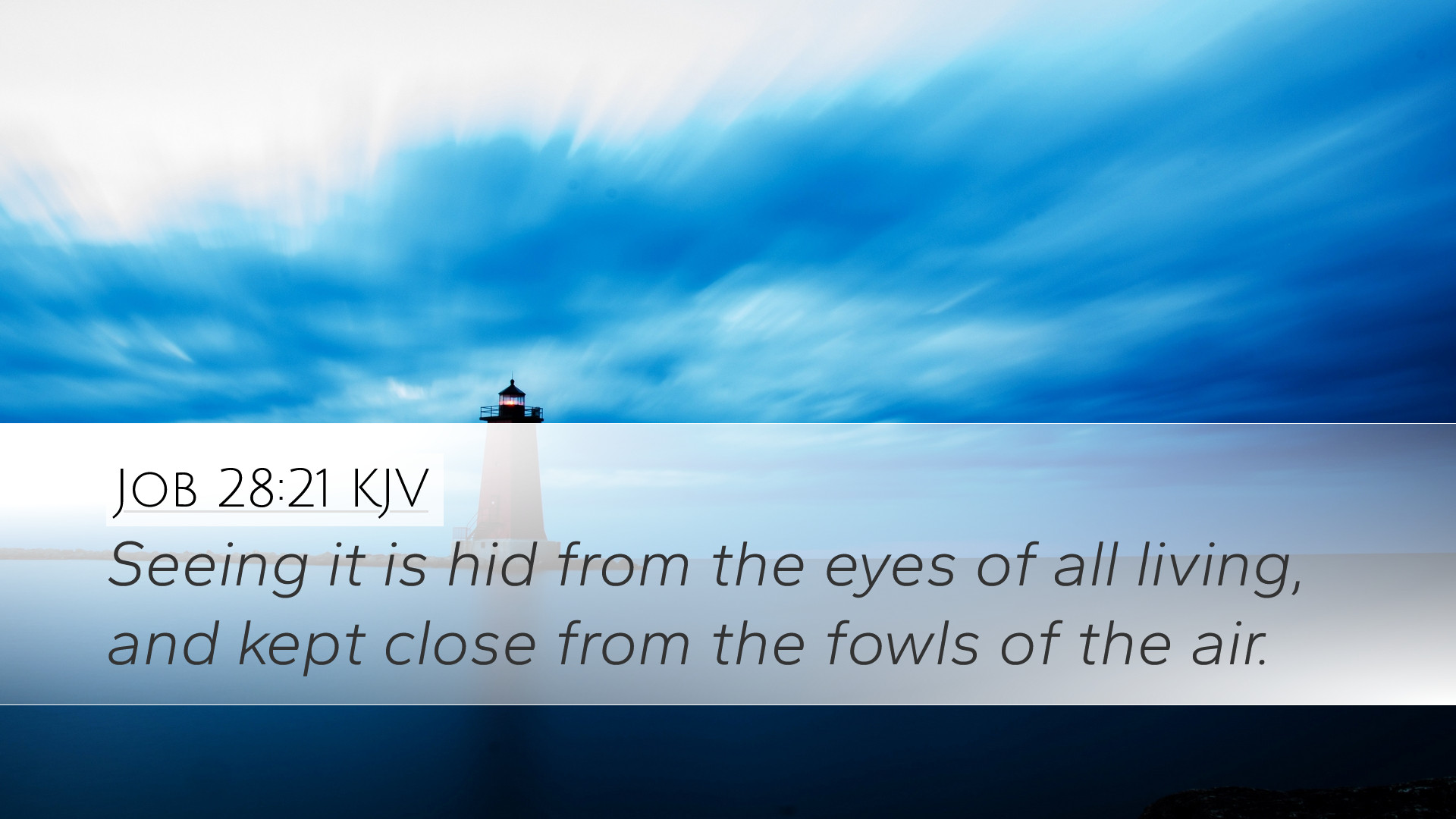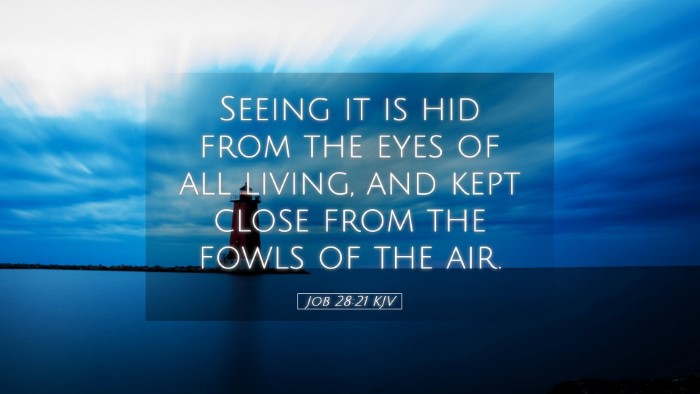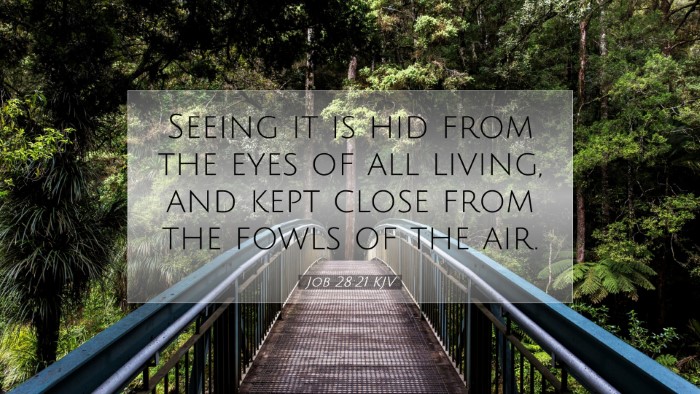Old Testament
Genesis Exodus Leviticus Numbers Deuteronomy Joshua Judges Ruth 1 Samuel 2 Samuel 1 Kings 2 Kings 1 Chronicles 2 Chronicles Ezra Nehemiah Esther Job Psalms Proverbs Ecclesiastes Song of Solomon Isaiah Jeremiah Lamentations Ezekiel Daniel Hosea Joel Amos Obadiah Jonah Micah Nahum Habakkuk Zephaniah Haggai Zechariah MalachiJob 28:21
Job 28:21 KJV
Seeing it is hid from the eyes of all living, and kept close from the fowls of the air.
Job 28:21 Bible Commentary
Job 28:21 Commentary
Verse Context: Job 28:21 states, "For it is hidden from the eyes of all living and concealed from the birds of the air." This verse is situated in a discourse that explores the profound nature of wisdom and its elusiveness. The chapter serves as a reflection on human limitations in understanding divine wisdom and the value of treasure sought by mankind.
Introduction to Wisdom
Matthew Henry emphasizes that this chapter stands apart from the earlier dialogues in Job, focusing instead on wisdom itself rather than on Job’s suffering. It highlights the quest for wisdom and its intrinsic value, illustrating how it transcends mere earthly treasures.
Understanding the Hiddenness of Wisdom
Albert Barnes notes that wisdom is portrayed as something that is fundamentally "hidden" from human perception. The use of "hidden" suggests that it is beyond the grasp of human intellect or the processes of nature. While human beings can mine deep into the earth and discover material treasures, they remain blind to the depths of divine wisdom.
- The Limitations of Human Insight: The reference to eyes illustrates a broader theme of human limitation. No matter how advanced or knowledgeable humanity becomes, the true wisdom of God remains out of reach without divine revelation.
- Comparison with Natural Phenomena: The phrase "concealed from the birds of the air" suggests that even the most perceptive of creatures, with their keen senses, cannot discern the depths of wisdom. This starkly contrasts the ability of creation to find material sustenance versus the inability to comprehend divine truth.
Theological Implications
Adam Clarke argues that the wisdom being discussed encompasses not only moral and ethical considerations but the very understanding of God's governance of the universe. Clarke elucidates that true wisdom includes recognizing God’s sovereignty and the intricate design of creation.
- The Nature of Divine Wisdom: This wisdom is beyond human invention and understanding. It reflects the Creator’s attributes and requires humility to acknowledge that finite minds cannot grasp infinite wisdom.
- The Pursuit of Wisdom: This notion provokes introspection about how modern believers pursue wisdom and discern its true essence. It reflects a need for dependence on divine revelation and guidance through prayer and scripture.
Wisdom in the Context of Suffering
In the heart of Job's experiences, there is a poignant contrast between human wisdom, which often fails in times of suffering, and the divine wisdom that encompasses understanding and purpose. Both Henry and Barnes assert that Job's friends sought to apply their own understanding to Job’s predicament without grasping the divine perspective, which highlights the inadequacies of human reasoning.
The Pursuit of Wisdom in Believers’ Lives
The reflection on Job 28:21 invites believers to consider their pursuit of wisdom in various domains of life, emphasizing that such pursuits should be rooted in a relationship with God.
- The Role of Scripture: Engaging deeply with the Bible can be seen as a means of uncovering divine wisdom that is otherwise hidden.
- The Importance of Prayer: Prayer serves as a pivotal avenue through which believers seek understanding and discernment, acknowledging that wisdom is a spiritual gift.
- The Community Aspect: Believers are encouraged to seek counsel from wise individuals within the faith community. Mutual support can provide insight into God’s discernment.
Conclusion
In examining Job 28:21, the collective insights of Matthew Henry, Albert Barnes, and Adam Clarke remind us of the profound depths of divine wisdom that far exceed our understanding. It serves as a call to humility, a recognition of our limitations, and an invitation to seek God earnestly for the wisdom that leads to true understanding and fulfillment.


